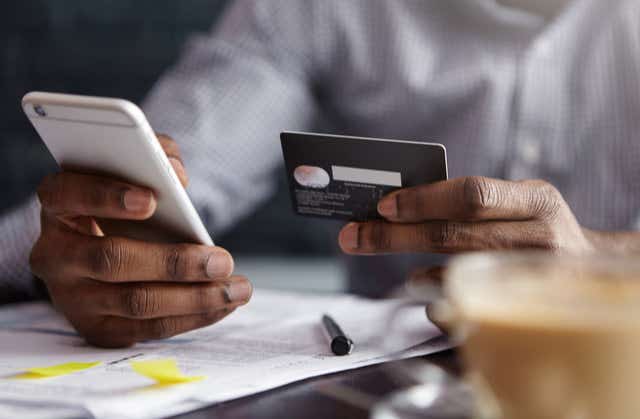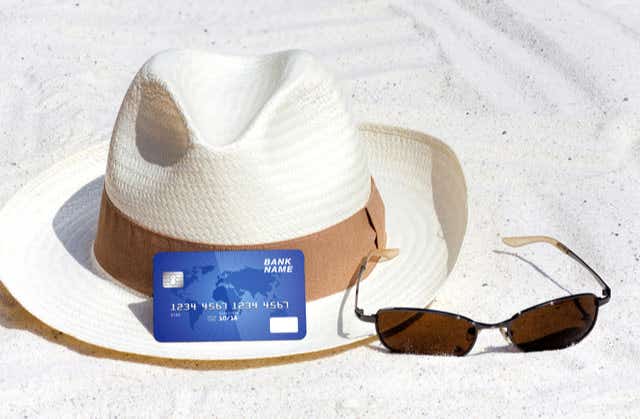- Uswitch.com>
- Credit Cards>
- Credit Card Advance Cash Withdrawals - The Costs

It can be tempting to use your credit card to withdraw cash, especially if you do not have access to other credit. However, in our guide to credit card cash withdrawals we explain why withdrawing cash with a credit card can end up being costly and why there are better ways to access cash.
Find an interest free overdraft
Compare a range of current accounts to find a suitable overdraft rate for you.
Making cash withdrawals using a credit card
It's important to know the difference between taking out cash from an ATM using a debit and a credit card, because the costs involved vary wildly.
Withdrawing money from a hole in the wall machine using your debit card carries no fee, or a small one-off withdrawal fee, depending on the provider of the hole in the wall or cash dispensing machine. However, there's no interest to pay on the amount you withdraw if your account is in credit and you will not be charged any ongoing fees if you balance is in the black.
Using a credit card to withdraw cash usually involves an extra cost because cash advances tend to attract a withdrawal fee plus interest charges. Those interest charges start from the day you make the withdrawal. There’s usually no interest-free credit period for cash withdrawals.
Credit cards and debit cards are designed for different purposes and in order to avoid extra costs it is important to understand the differences between them.
Making credit card cash withdrawals to pay for food, bills or services is one of the more expensive ways to borrow money. Yet many consumers are still unaware of the true cost of taking out cash with a credit card, believing it to be no different to using a debit card.

The facts about credit card withdrawals
Whether you make a credit card cash withdrawal from a cash machine at home or abroad, you will usually pay interest from the day you make the withdrawal.
This is because unlike standard credit card purchases, cash withdrawals are rarely interest-free. Cash withdrawals may also be charged at a higher Annual Percentage Rate (APR) than the standard rate paid on purchases.
Withdrawals made overseas may incur a cash handling fee, a foreign exchange fee and a higher interest rate with no interest-free period. People often make the mistake of thinking that because purchases made on a credit card enjoy an interest-free period the same is true for cash withdrawals, but that is not usually the case.
If you ask for cash back when you make a purchase with your credit card, you will pay a fee and interest. Whereas with a debit card this service would be free. In order not to rack up extra charges, it is better to use a debit card every time you want to withdraw cash from an ATM or ask for cashback.
If you do need to take out credit card cash in an emergency then you will be subject to your card’s maximum daily withdrawal amount. Your card may have a cash withdrawal limit that stops you taking out more than a certain amount from

Credit card withdrawal alternatives
The best alternative to cash withdrawals using a credit card is to withdraw cash with a debit card, which is almost always cheaper than any credit card cash withdrawal. Paying directly for items using a credit card generally works out to be cheaper than taking out cash on a credit card and using it to pay for an item or service.
What’s more, buying items with your credit card gives you some consumer protection, which may be useful if the goods or services are faulty. This is because of a legal protection known as Section 75 which protects you if your credit card purchase was over £100 and something goes wrong.
Alternatives to taking out cash using your credit card
If your current account has an overdraft facility, you could try using or extending it slightly if you find that you need extra cash. Overdraft charges can be much cheaper than withdrawing cash with a credit card, while you might also get the benefit of an interest-free period in which to clear the balance.
The best way to do this is to get in touch your current account provider and ask if you can have your overdraft extended. This is known as an arranged overdraft facility.
If you have no other option but to make a credit card cash withdrawal, you'll need to clear your balance as soon as possible to avoid racking up huge interest charges. Try to pay back the money quickly so that you do not have daily interest charges mounting up on your credit card account.
Avoid cash withdrawals by sorting out a budget
Sometimes you might find you are using your credit card for cash withdrawals because you have run out of cash and there is some time to go before payday. If that is the case, try looking at your spending patterns and seeing where there might be an opportunity to cut back or economise.
It can be helpful to look at how you spend money and why you need to resort to credit in order to pay bills. Are there areas where you could economise in order to reduce the need to take out cash on your credit card? Could you shop around for cheaper household services like utilities and broadband in order to reduce your monthly costs?
It may be that you are using credit card cash withdrawals for specific items or at certain times of the month. Could you plan ahead and budget better so that you do not need to use your credit card as a source for emergency cash withdrawals? For example, if you end up running out of cash on a night out and using your card for extra purchases, think about taking a set amount of cash with you and leaving your card at home.
I'm going on holiday for 2 weeks. My friends are all taking cash with them but I'm reluctant to do this in case I lose it – what are my other options?
There are a number of options including travellers’ cheques, credit cards, prepaid cards and debit cards. You are right to think that cash is a more risky option, as it will be easy to lose. Whatever option you choose, make sure that you keep all valuables, including cards and wallet, in your hotel safe whenever you are not using them. If you are using a credit card, choose one that does not make extra charges for using it abroad, and remember to choose the option to pay in the local currency, as you will receive a better foreign exchange rate.
Read more …
